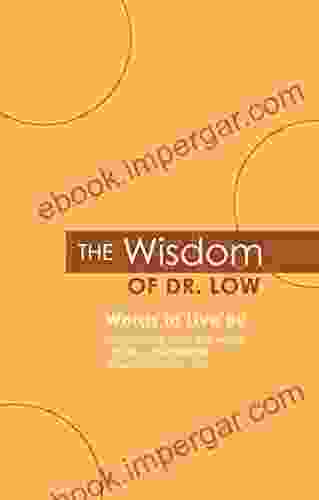Sustainable Protein Sources: A Comprehensive Guide to Plant-Based and Alternative Meat Options


In recent years, there has been a growing awareness of the environmental and ethical implications of meat production. The livestock industry is a major contributor to greenhouse gas emissions, water pollution, and deforestation. As a result, many people are looking for sustainable alternatives to traditional meat products.
5 out of 5
| Language | : | English |
| File size | : | 46939 KB |
| Text-to-Speech | : | Enabled |
| Screen Reader | : | Supported |
| Enhanced typesetting | : | Enabled |
| Print length | : | 356 pages |
This comprehensive guide will provide you with everything you need to know about sustainable protein sources. We'll cover the different types of plant-based and alternative meat options available, as well as their nutritional benefits and environmental impact.
Plant-Based Protein Sources
Plant-based protein sources are derived from plants, such as legumes, beans, lentils, tofu, tempeh, and seitan. These foods are all high in protein and fiber, and they are a good source of vitamins and minerals.
Some of the most popular plant-based protein sources include:
- Legumes: Legumes are a family of plants that includes beans, lentils, and peas. They are a good source of protein, fiber, and iron.
- Tofu: Tofu is a soybean-based food that is high in protein and calcium.
- Tempeh: Tempeh is a fermented soybean product that is high in protein and probiotics.
- Seitan: Seitan is a wheat-based food that is high in protein and gluten.
Alternative Meat Options
Alternative meat options are products that are designed to mimic the taste and texture of meat, but they are made from plant-based or other non-animal ingredients. Some of the most popular alternative meat options include:
- Plant-based burgers: Plant-based burgers are made from a variety of plant-based ingredients, such as soy, pea protein, or black beans. They are a good source of protein and fiber, and they are often indistinguishable from traditional beef burgers.
- Plant-based sausages: Plant-based sausages are made from a variety of plant-based ingredients, such as soy, pea protein, or lentils. They are a good source of protein and fiber, and they can be used in a variety of dishes.
- Plant-based chicken: Plant-based chicken is made from a variety of plant-based ingredients, such as soy, pea protein, or wheat gluten. It is a good source of protein and fiber, and it can be used in a variety of dishes.
- Cultured meat: Cultured meat is meat that is grown in a laboratory from animal cells. It is a potential sustainable alternative to traditional meat production, as it does not require the raising and slaughtering of animals.
Nutritional Benefits of Sustainable Protein Sources
Sustainable protein sources are a good source of protein, fiber, and other essential nutrients. They are also low in saturated fat and cholesterol. Eating a diet rich in sustainable protein sources can help to reduce your risk of heart disease, stroke, type 2 diabetes, and certain types of cancer.
Here is a table that compares the nutritional content of some popular sustainable protein sources:
| Nutrient | Plant-Based Protein Sources | Alternative Meat Options |
|---|---|---|
| Protein | 10-20 grams per serving | 15-25 grams per serving |
| Fiber | 5-10 grams per serving | 2-5 grams per serving |
| Saturated Fat | 0-2 grams per serving | 0-3 grams per serving |
| Cholesterol | 0 milligrams per serving | 0 milligrams per serving |
Environmental Impact of Sustainable Protein Sources
The production of sustainable protein sources has a much lower environmental impact than the production of traditional meat. Plant-based protein sources require less land, water, and energy to produce, and they generate fewer greenhouse gas emissions. Alternative meat options also have a lower environmental impact than traditional meat, but their impact is not as low as that of plant-based protein sources.
Here is a table that compares the environmental impact of some popular sustainable protein sources:
| Environmental Impact | Plant-Based Protein Sources | Alternative Meat Options |
|---|---|---|
| Land Use | Very low | Low |
| Water Use | Very low | Low |
| Energy Use | Very low | Low |
| Greenhouse Gas Emissions | Very low | Low |
Sustainable protein sources are a healthy and environmentally friendly alternative to traditional meat products. They are a good source of protein, fiber, and other essential nutrients, and they have a much lower environmental impact than meat. If you are looking to reduce your meat consumption, or if you are simply looking for healthier and more sustainable protein options, then I encourage you to give sustainable protein sources a try.
5 out of 5
| Language | : | English |
| File size | : | 46939 KB |
| Text-to-Speech | : | Enabled |
| Screen Reader | : | Supported |
| Enhanced typesetting | : | Enabled |
| Print length | : | 356 pages |
Do you want to contribute by writing guest posts on this blog?
Please contact us and send us a resume of previous articles that you have written.
 Book
Book Novel
Novel Page
Page Chapter
Chapter Text
Text Story
Story Genre
Genre Reader
Reader Library
Library Paperback
Paperback E-book
E-book Magazine
Magazine Newspaper
Newspaper Paragraph
Paragraph Sentence
Sentence Bookmark
Bookmark Shelf
Shelf Glossary
Glossary Bibliography
Bibliography Foreword
Foreword Preface
Preface Synopsis
Synopsis Annotation
Annotation Footnote
Footnote Manuscript
Manuscript Scroll
Scroll Codex
Codex Tome
Tome Bestseller
Bestseller Classics
Classics Library card
Library card Narrative
Narrative Biography
Biography Autobiography
Autobiography Memoir
Memoir Reference
Reference Encyclopedia
Encyclopedia Kermit Roosevelt
Kermit Roosevelt Kim Krans
Kim Krans Kenneth Weisbrode
Kenneth Weisbrode Kevin Walker
Kevin Walker Ken Jennings
Ken Jennings Kenney F Hegland
Kenney F Hegland Ken Taylor
Ken Taylor Kenneth J Heineman
Kenneth J Heineman Kenneth P Norwick
Kenneth P Norwick Kevin Williamson
Kevin Williamson Ken Worpole
Ken Worpole Kenichiro Sugitani
Kenichiro Sugitani Kindle Edition
Kindle Edition Kenneth W Estes
Kenneth W Estes Kelsey Oseid
Kelsey Oseid Kenneth D Ackerman
Kenneth D Ackerman Kevin Leman
Kevin Leman Kendall R Phillips
Kendall R Phillips Kenneth A Johnson
Kenneth A Johnson Kevin Edwards
Kevin Edwards
Light bulbAdvertise smarter! Our strategic ad space ensures maximum exposure. Reserve your spot today!

 John GrishamComparative Study of the United States and Japan: Unraveling the Tapestry of...
John GrishamComparative Study of the United States and Japan: Unraveling the Tapestry of... Guillermo BlairFollow ·16.6k
Guillermo BlairFollow ·16.6k Camden MitchellFollow ·10.1k
Camden MitchellFollow ·10.1k Cole PowellFollow ·15.1k
Cole PowellFollow ·15.1k Melvin BlairFollow ·10.7k
Melvin BlairFollow ·10.7k Sean TurnerFollow ·4.8k
Sean TurnerFollow ·4.8k H.G. WellsFollow ·5.6k
H.G. WellsFollow ·5.6k Doug PriceFollow ·15.1k
Doug PriceFollow ·15.1k John ParkerFollow ·7.4k
John ParkerFollow ·7.4k

 Chadwick Powell
Chadwick PowellDiscover the Secrets of Optimal Health with "The Healthy...
Preface: Embark on a Transformative...

 Andres Carter
Andres CarterUnveiling the Profound Journey of Womanhood: A Daughter's...
In the tapestry of...

 Travis Foster
Travis FosterWords to Live By: The Essential Guide to Finding...
Words have the power to shape our...

 Chinua Achebe
Chinua AchebeThe Ultimate Guide for Men to Recover from a Breakup
: Breakups are never...

 Spencer Powell
Spencer PowellNew Mindset, New Results: The Proven Path to Unleashing...
About the Book ...
5 out of 5
| Language | : | English |
| File size | : | 46939 KB |
| Text-to-Speech | : | Enabled |
| Screen Reader | : | Supported |
| Enhanced typesetting | : | Enabled |
| Print length | : | 356 pages |












